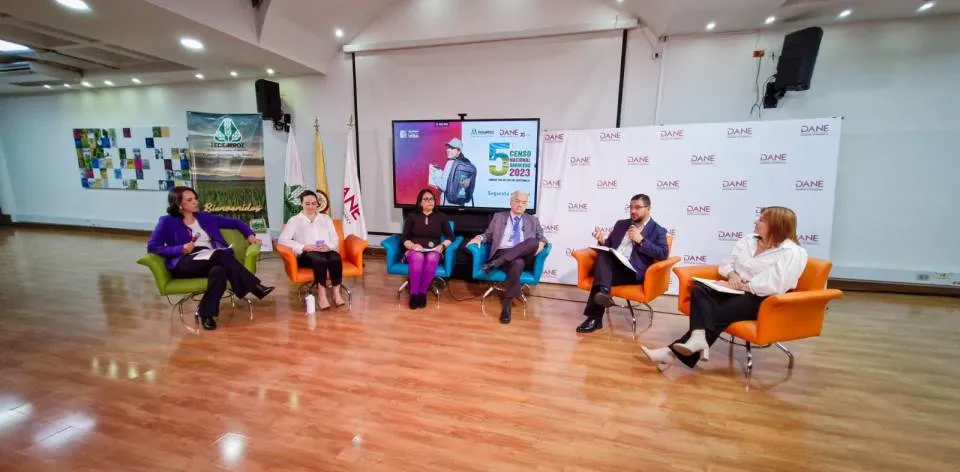PRESS ROOM
 24/4/2024
24/4/2024
Lets Plan Rice Planting

We are a rice-growing country by tradition! If we work together in responsibly planning the planting, we will achieve a socially, environmentally, and economically sustainable crop.
Bogotá, D.C., (@UPRAColombia, @Claudialili76). Rice is one of the most consumed foods in the world, a cereal considered essential for food security and a staple of Colombian cuisine in various regions of the country.
Colombia is a rice-growing country. This cereal is cultivated in over 195 municipalities located in 23 departments and is the livelihood of thousands of farmers who have traditionally dedicated themselves to rice cultivation.
The overall results from the Fifth National Rice Census 2023, conducted by DANE and Fedearroz, compared to those of the Fourth National Rice Census 2016, show a 3.3% growth in planted area and a 7.3% increase in green paddy rice production (see graph).

Producing too little is bad, but for the rice sector, producing too much is also detrimental as it affects the sector and can cause significant losses to all links in the chain: producers, processors, marketers, transporters, among others.
"That's why it's important that we plan rice plantings and ensure a successful harvest together. The Ministry of Agriculture, UPRA, and agricultural sector entities provide rice growers with different strategies and plans to support the chain in the processes of crop planning, harvesting, post-harvest, and marketing. The census, productive planning, and productive reconversion plans, zoning, are just some examples of instruments available to rice growers and the agricultural sector to improve the conditions of their crops in the short, medium, and long term," stated Claudia Liliana Cortés, Director General of UPRA.
Colombia already has a Rice Productive Planning Plan, «a strategic planning instrument, formulated participatively with public and private actors, led by the Ministry of Agriculture and UPRA, which contributes to improving agricultural productivity, food security, competitiveness, and legal security over land ownership, under principles of social responsibility, environmental sustainability, and economic development», explained Alexander Rodríguez Romero, Technical Director of Soil Efficient Use and Land Adjustment at UPRA.
We have a common goal; if we plan together, we can reduce planted areas, increase production, national average yield, use of certified seeds, and promote the consumption of this nutritious and valuable grain.
On the other hand, Alejandro Flórez, leader of Productive Planning Plans (POP) at UPRA, concluded: "We invite all interested parties, not only in the rice chain but also in chains such as potatoes, corn, panela cane, cocoa, forestry, dairy, and beef cattle, to consult and make use of the POP, available on our website, and navigate the Information System for Rural Agricultural Planning SIPRA, and get to know its cartographic and spatial component. These are fundamental tools for having a sustainable agricultural sector in the short, medium, and long term."
If we work together in responsibly planning the planting of Colombian rice, we will achieve a socially, environmentally, and economically sustainable crop.

